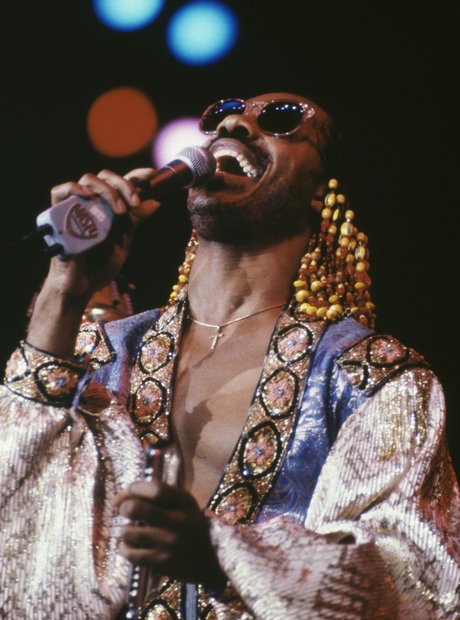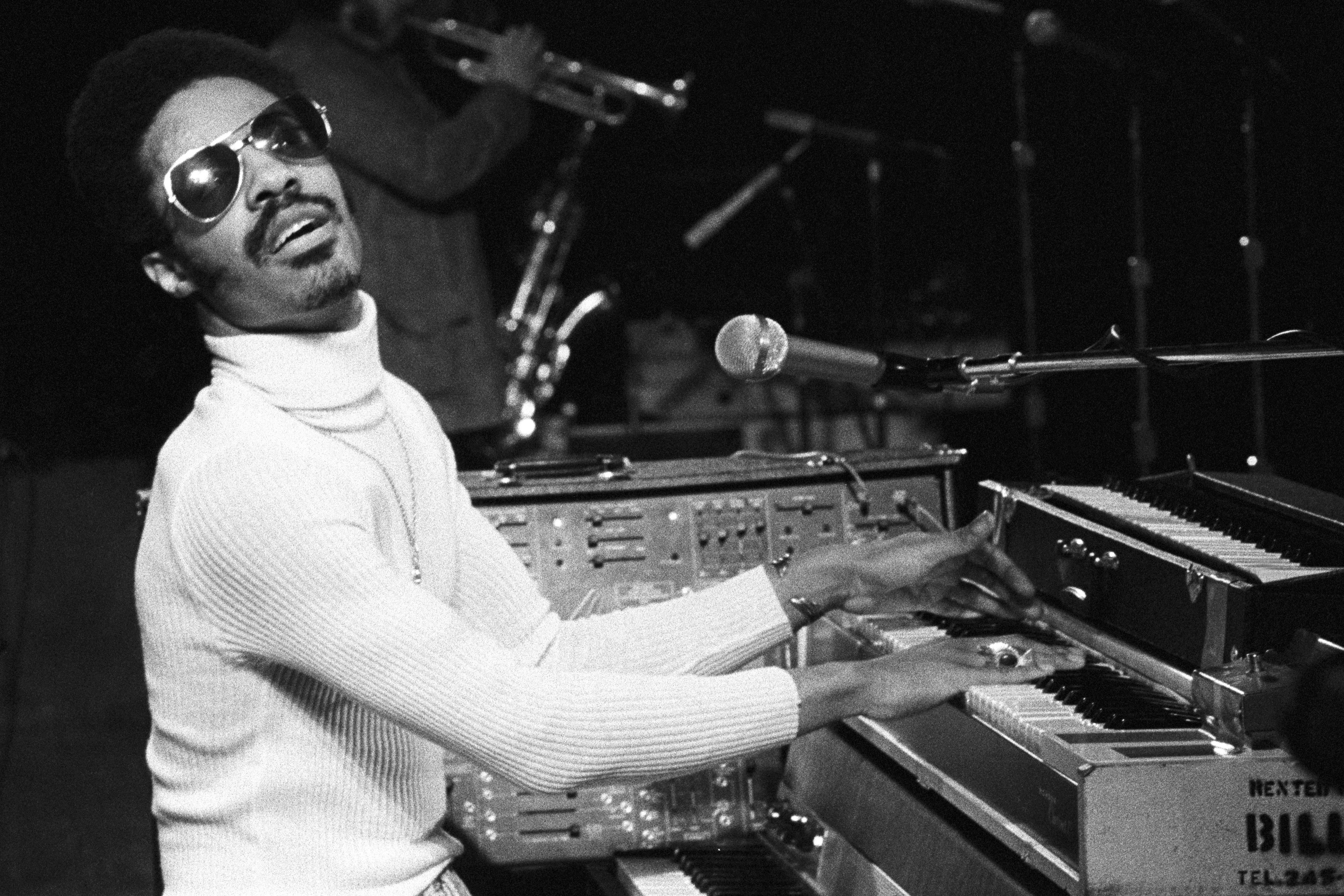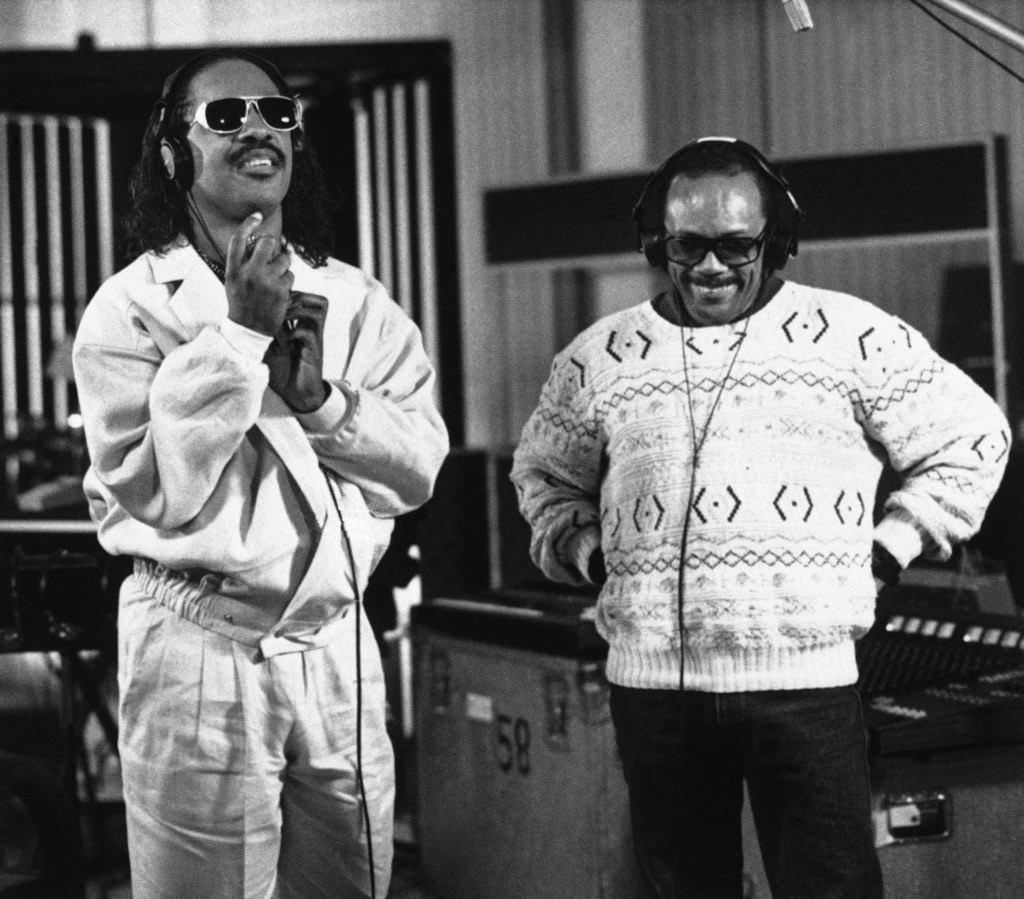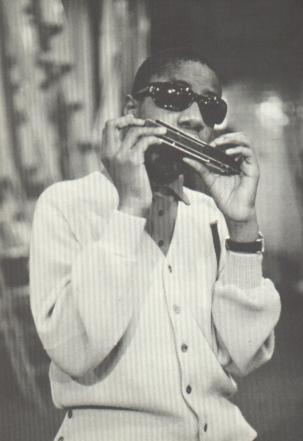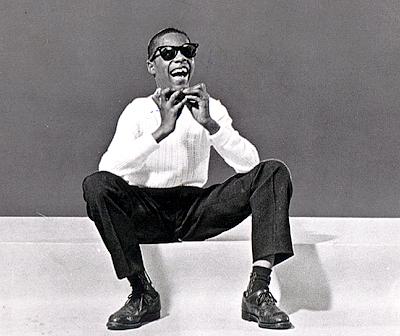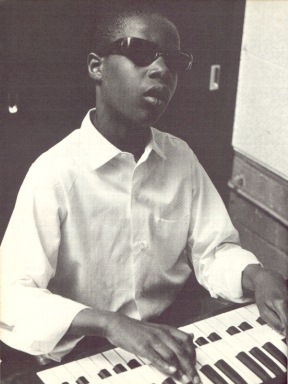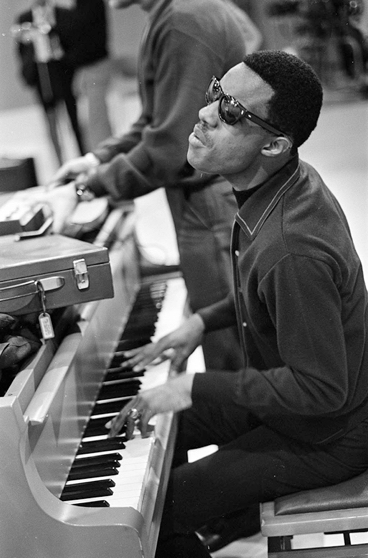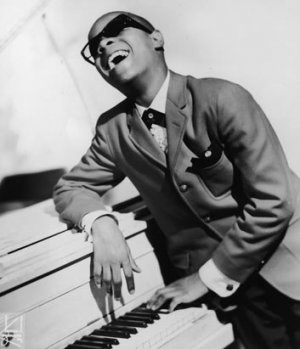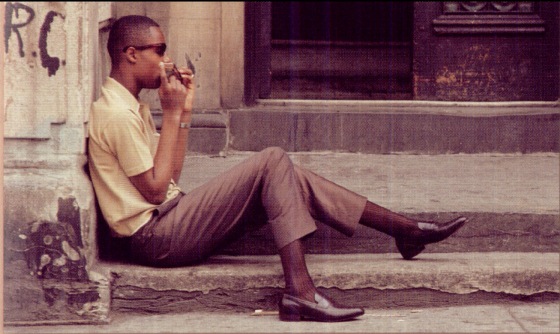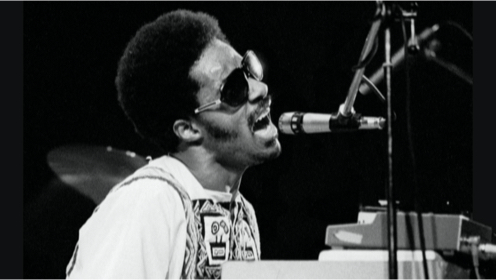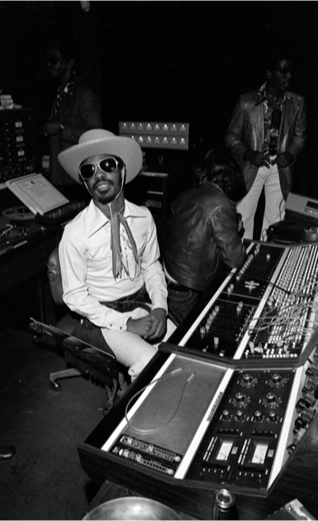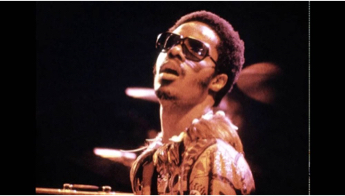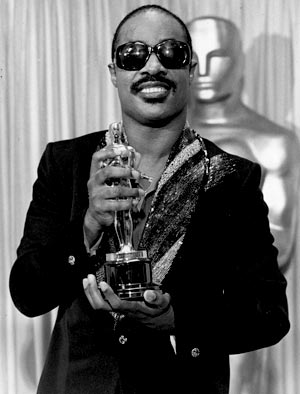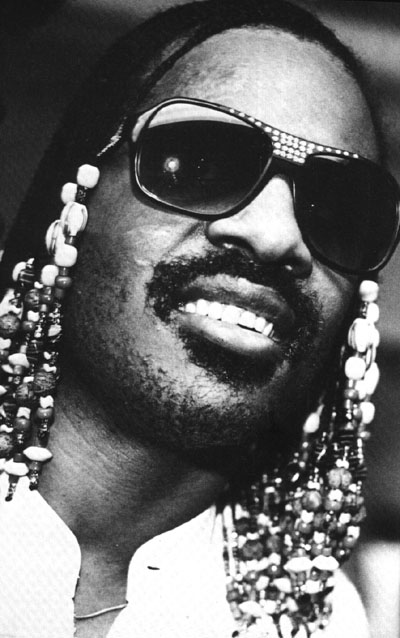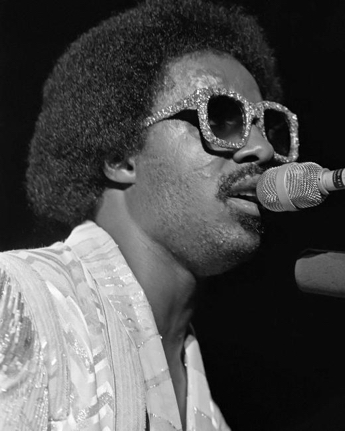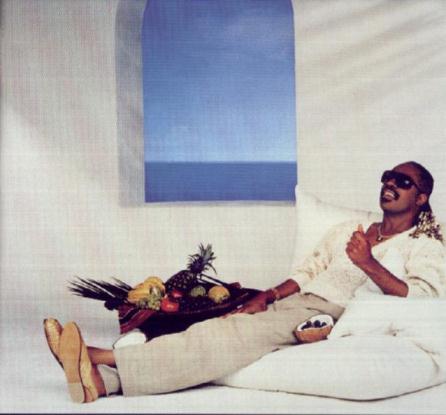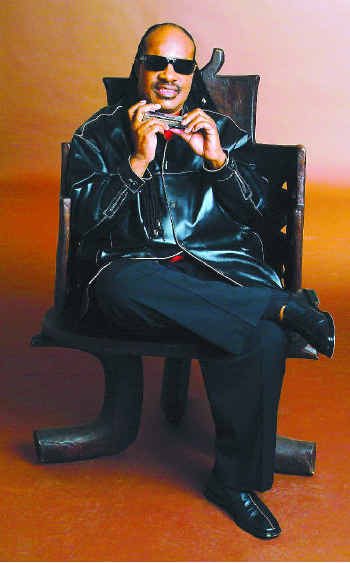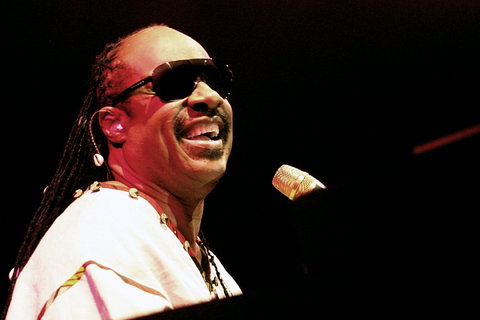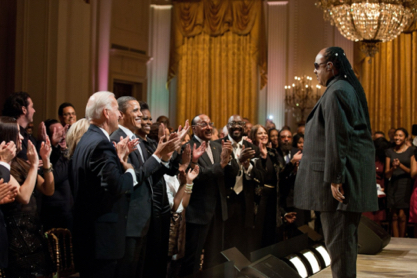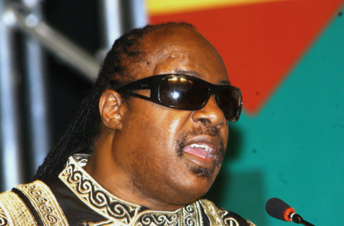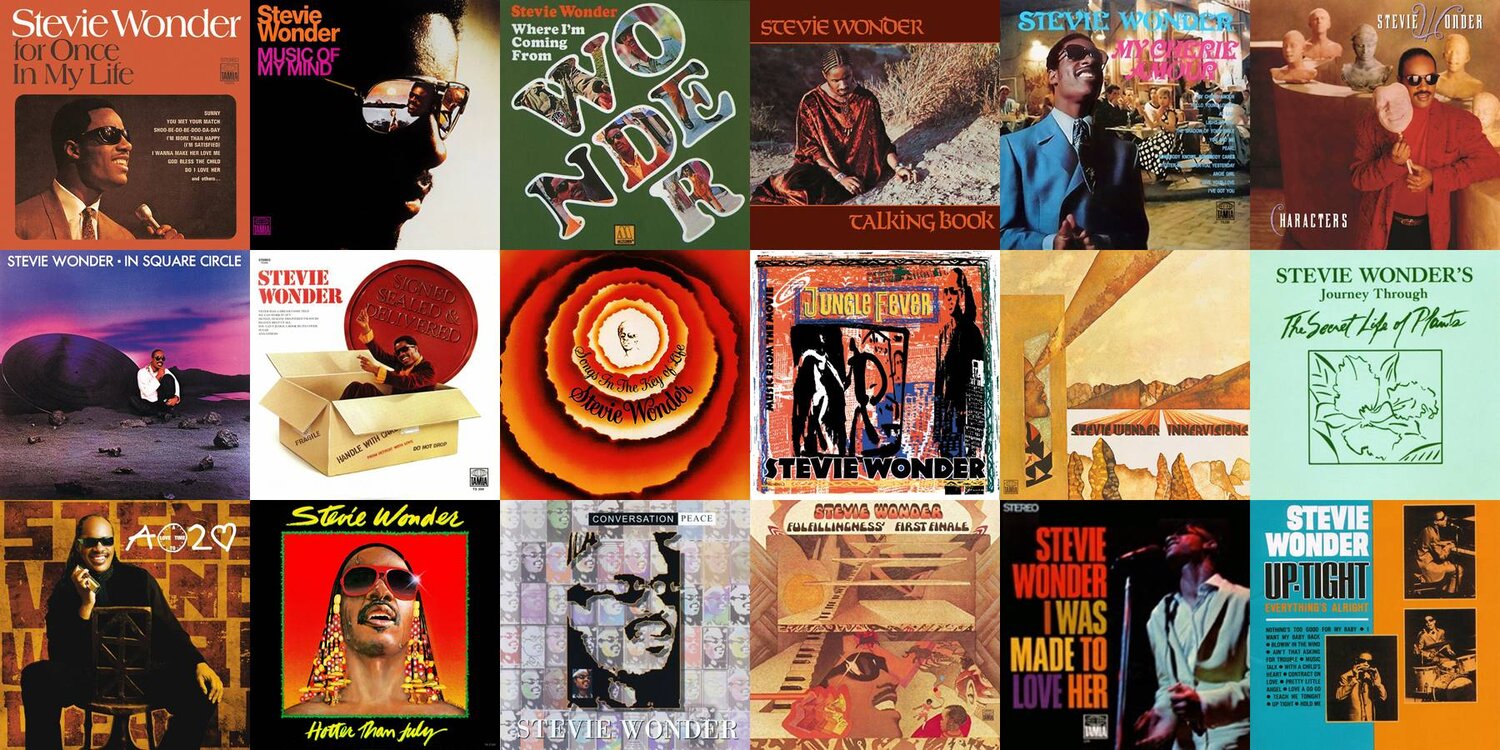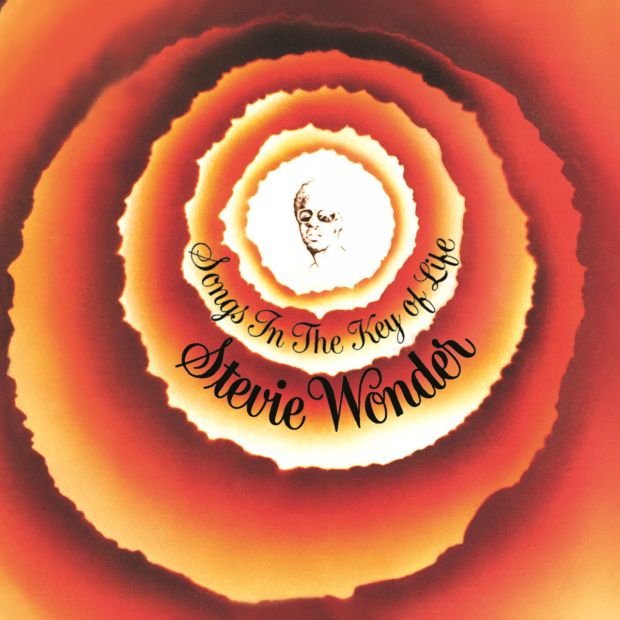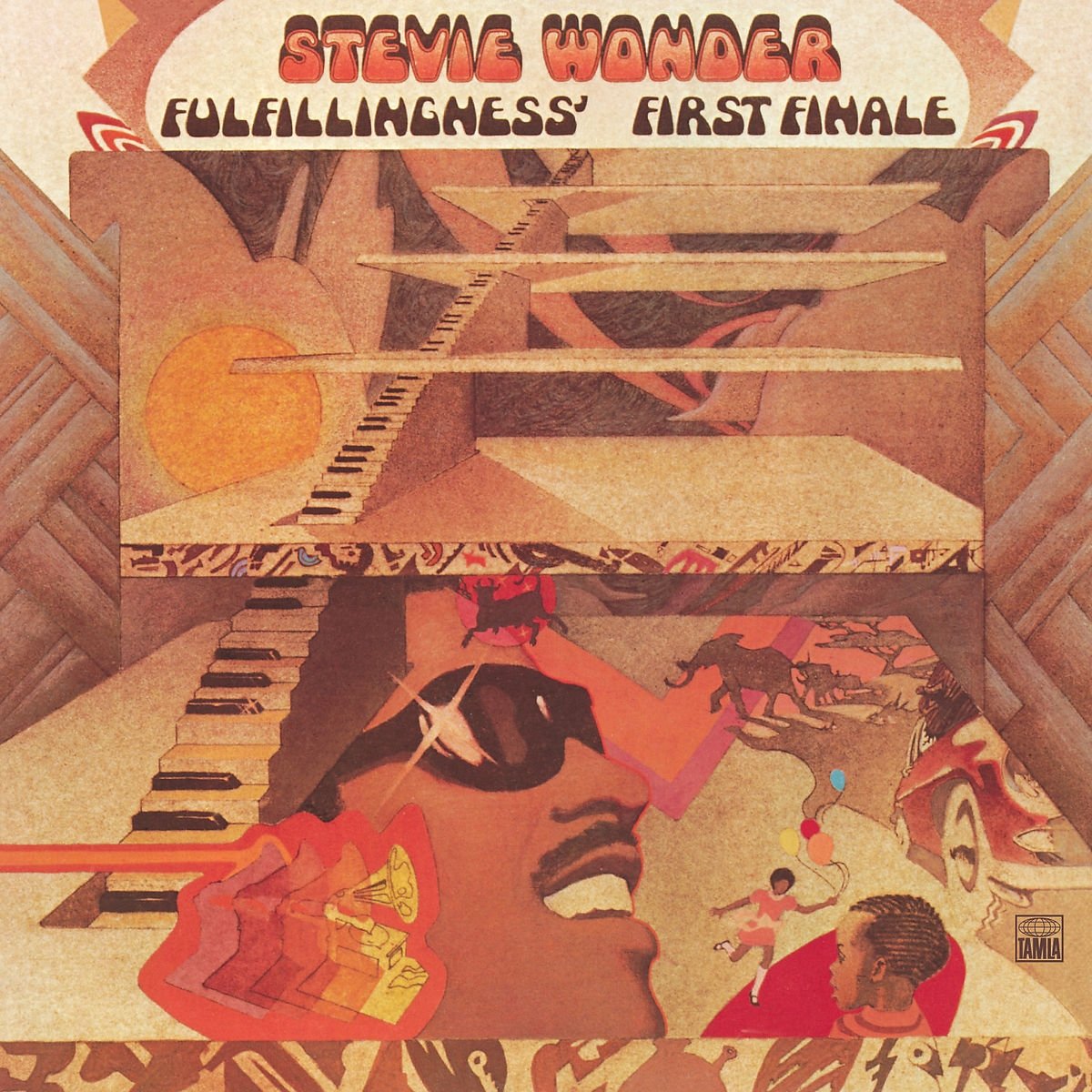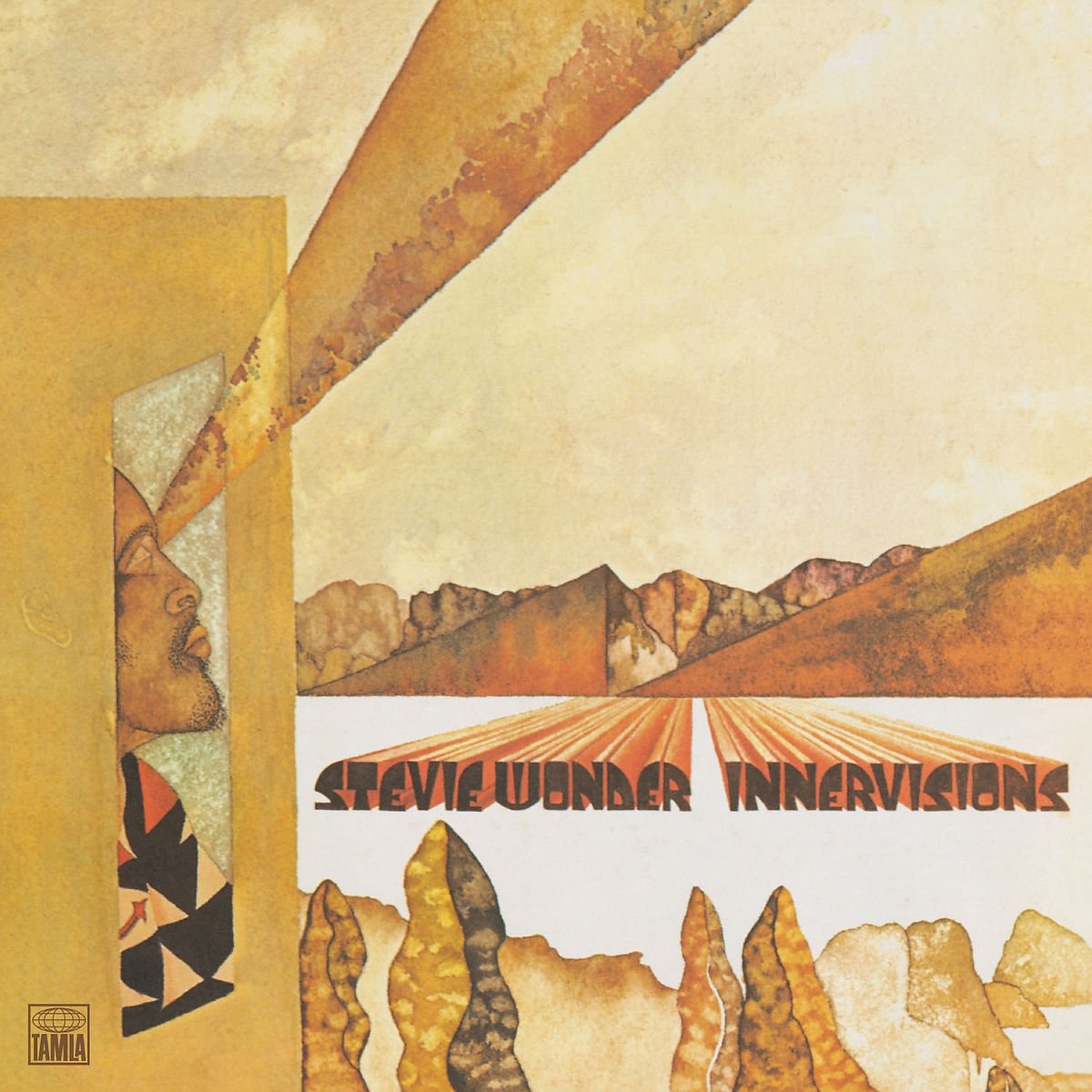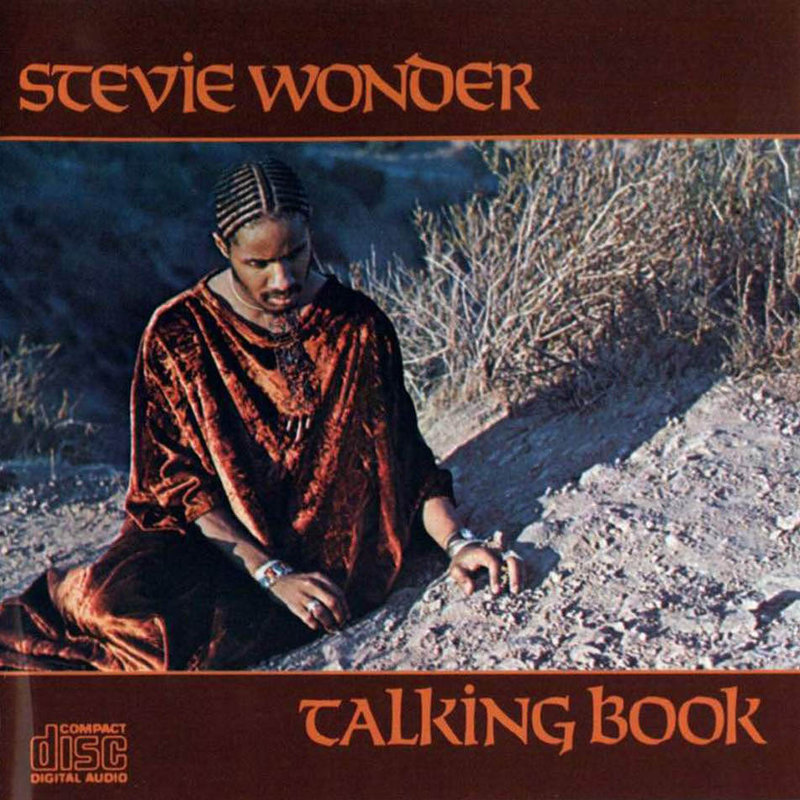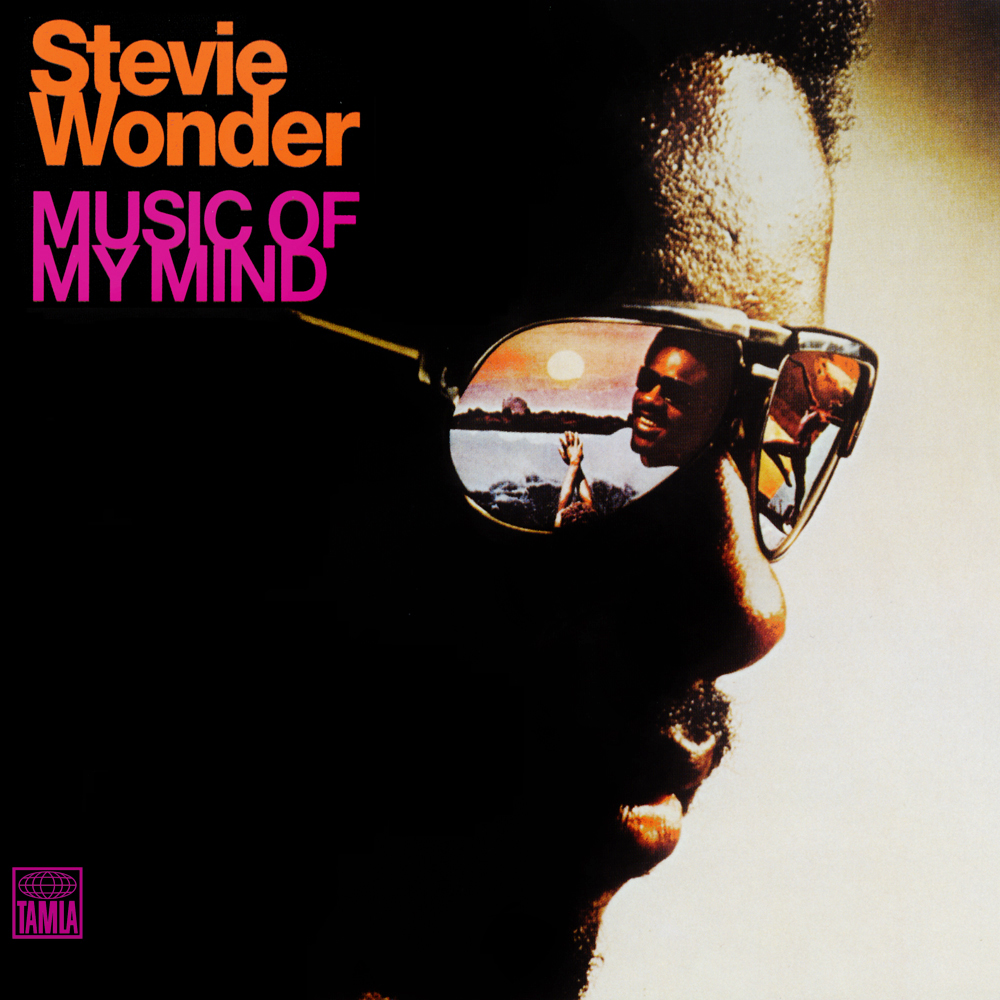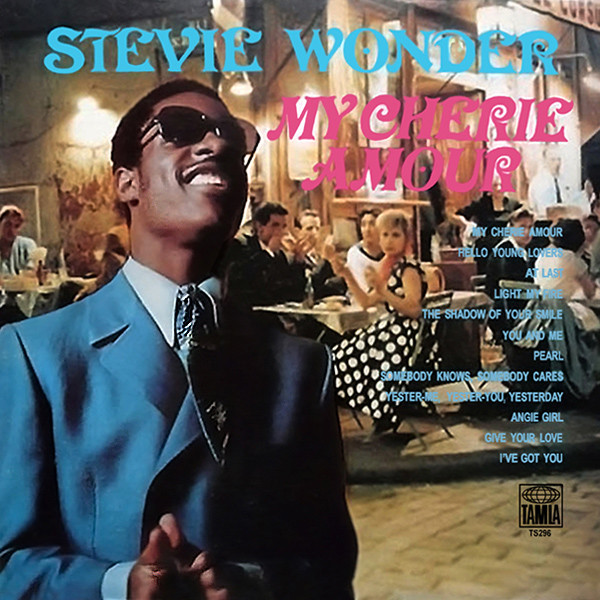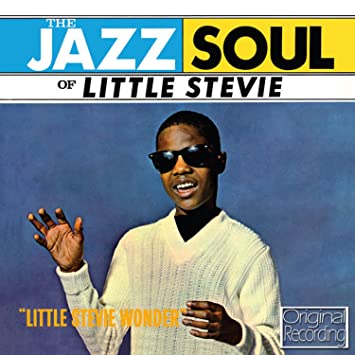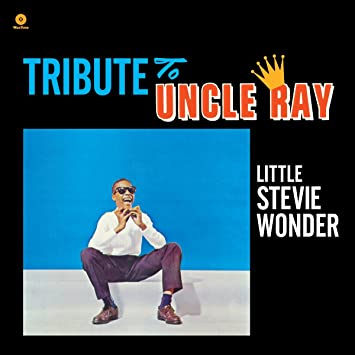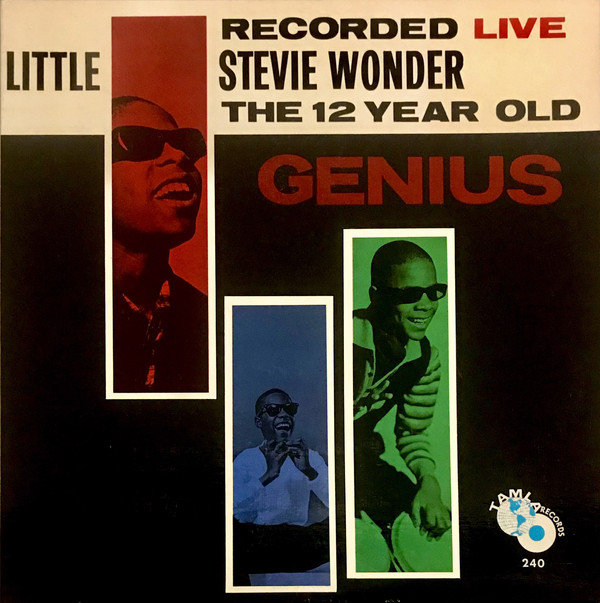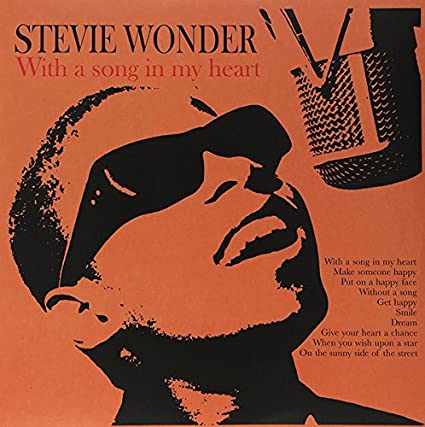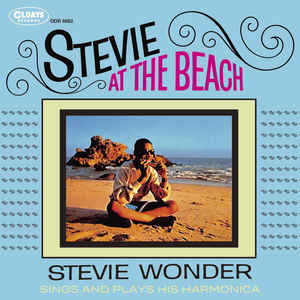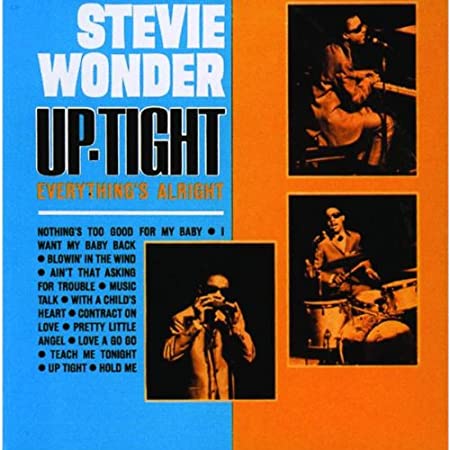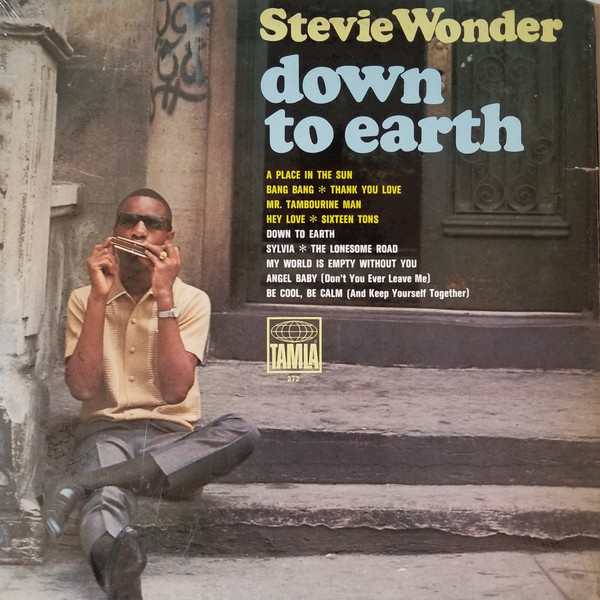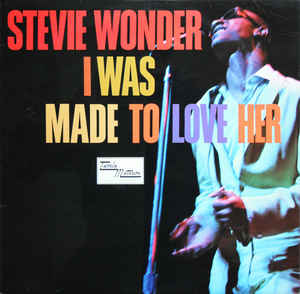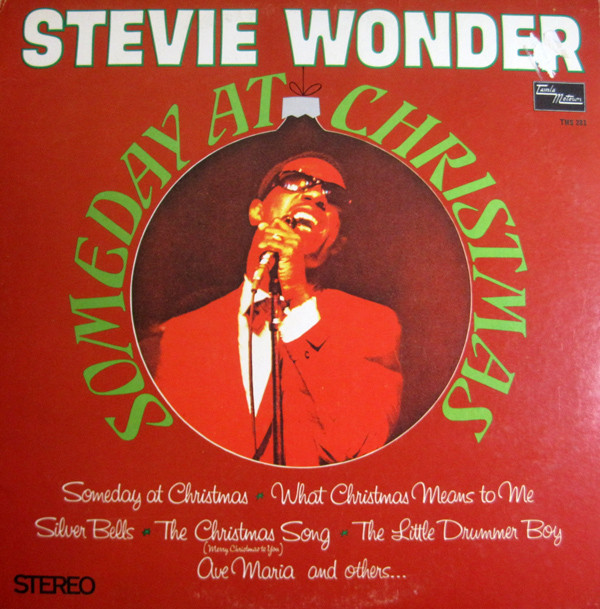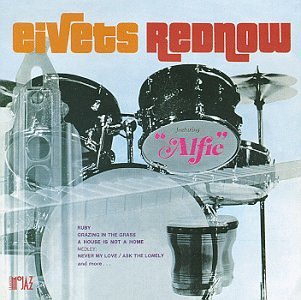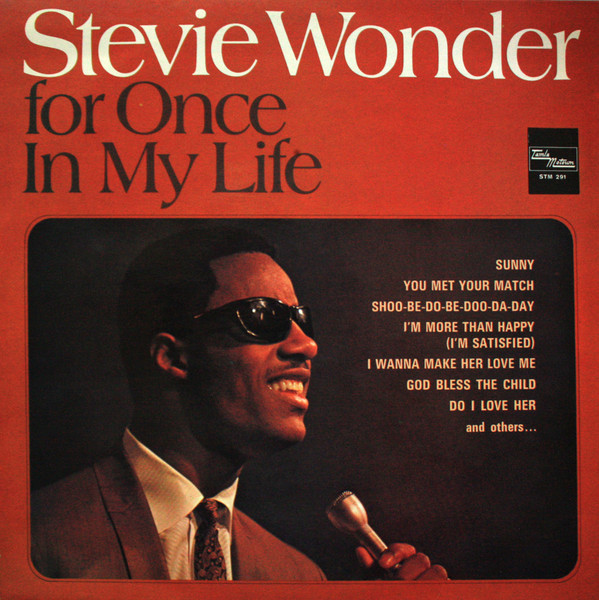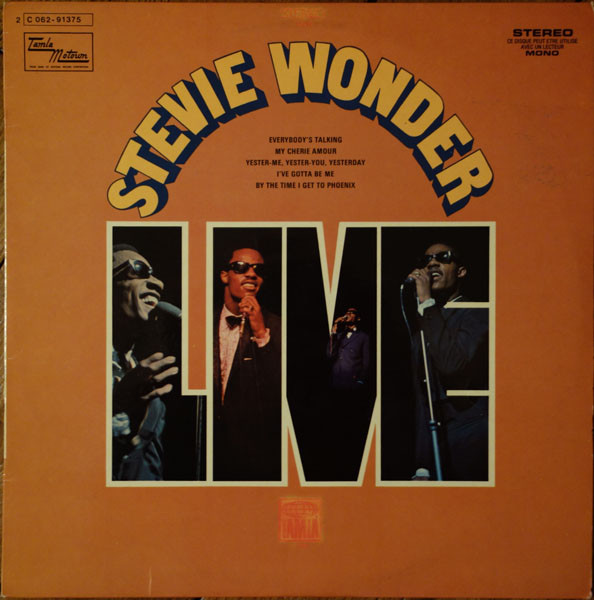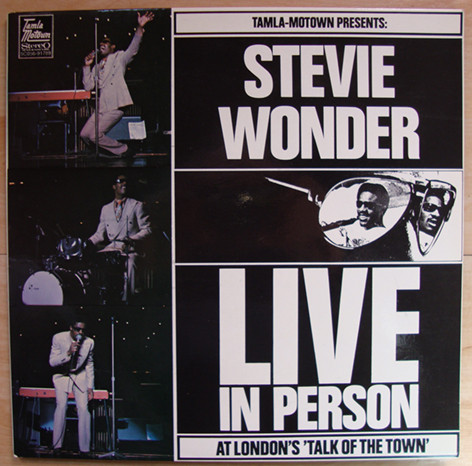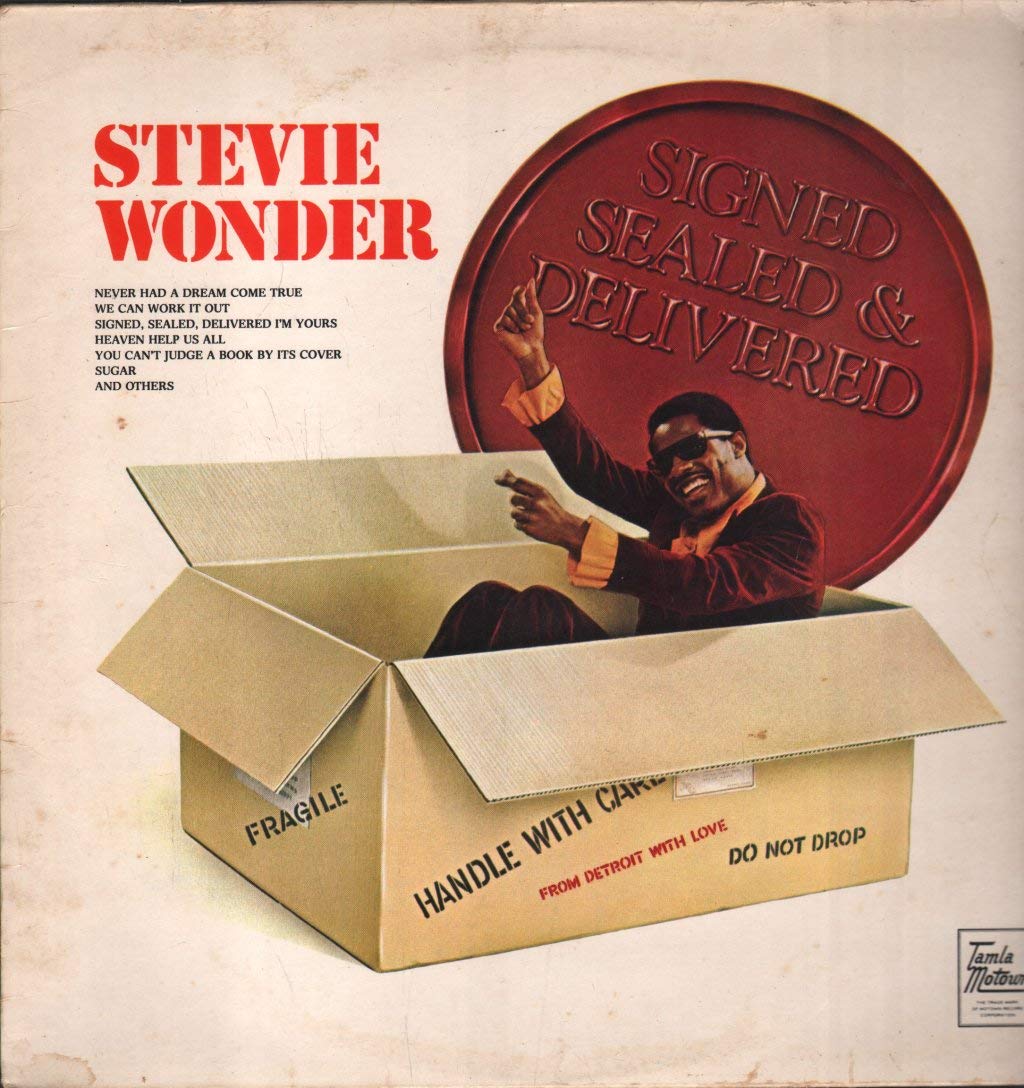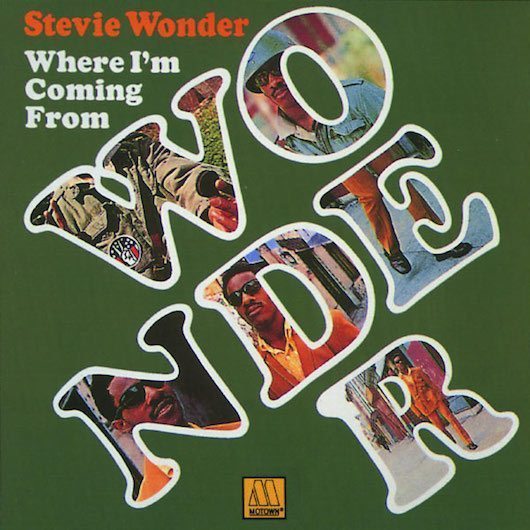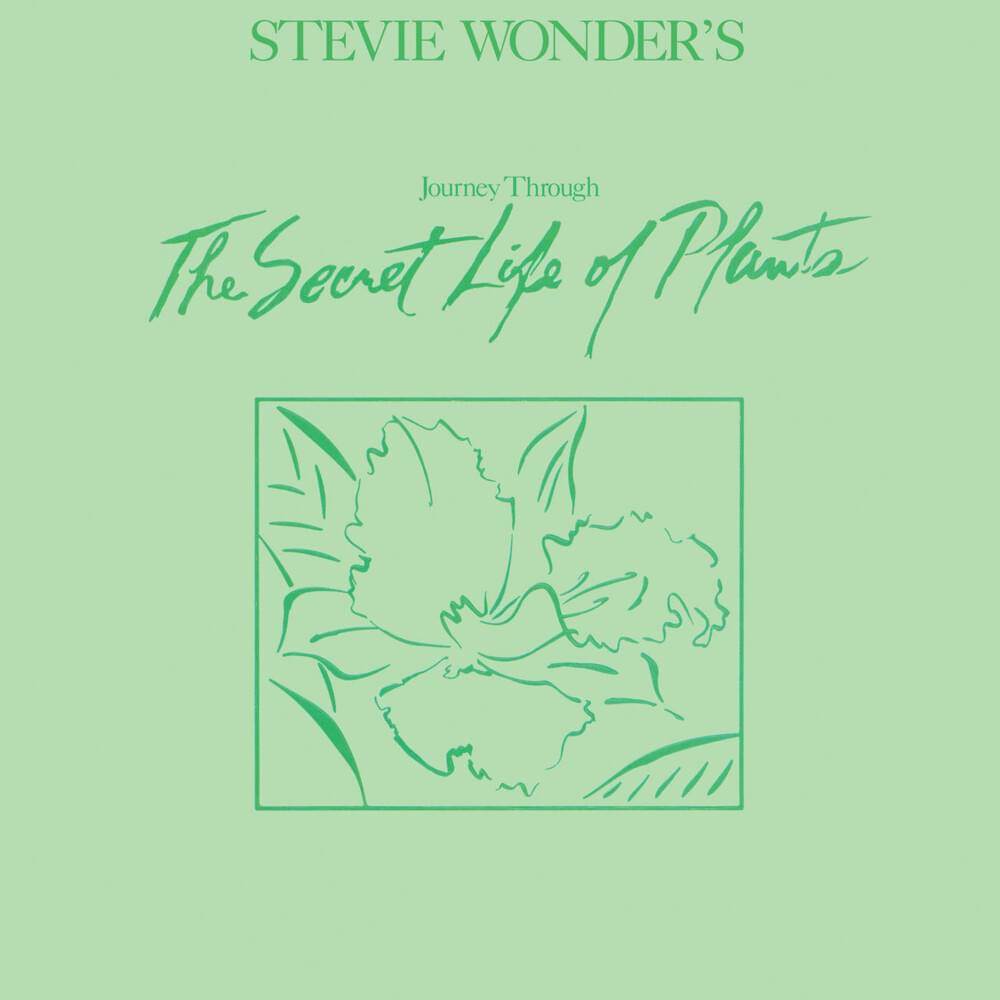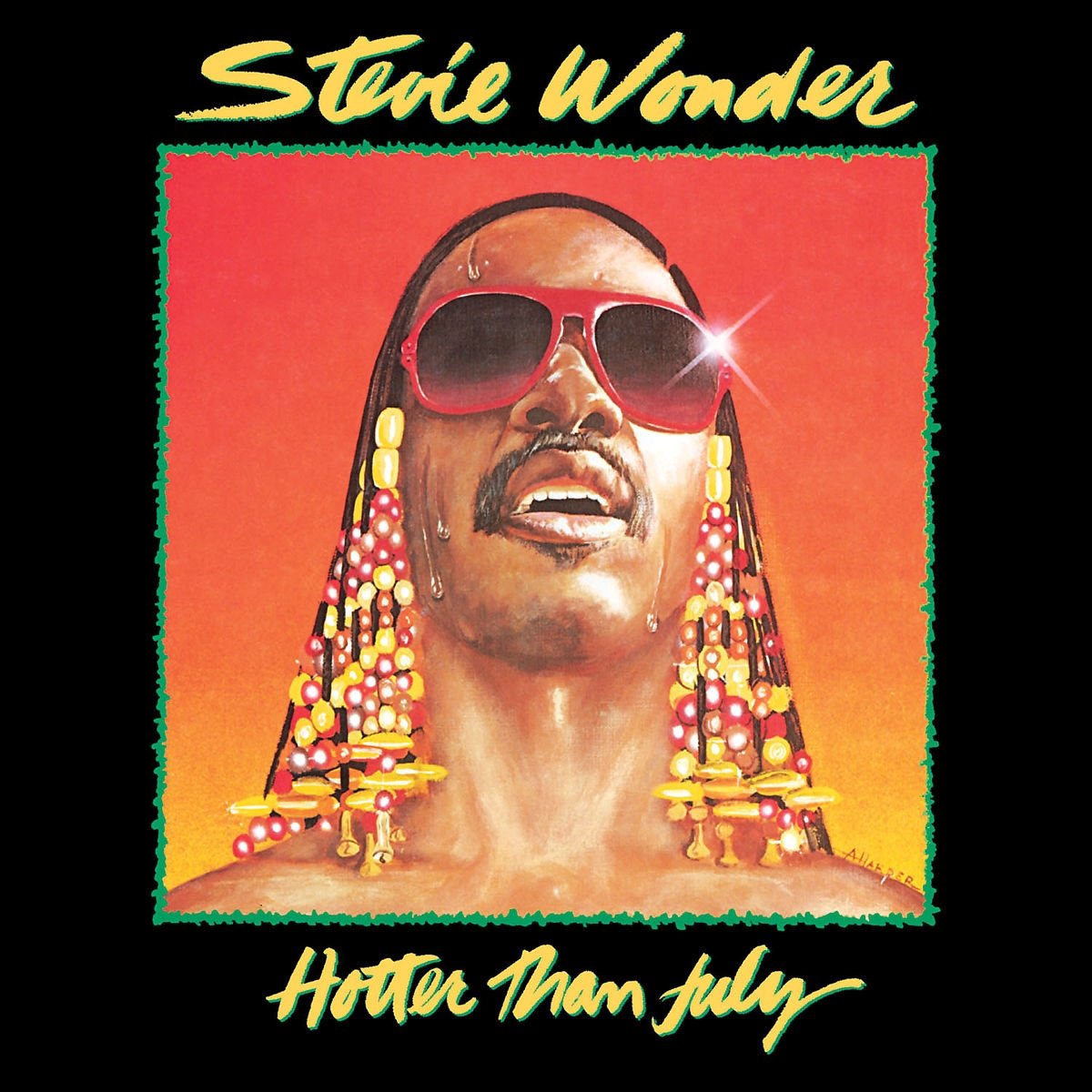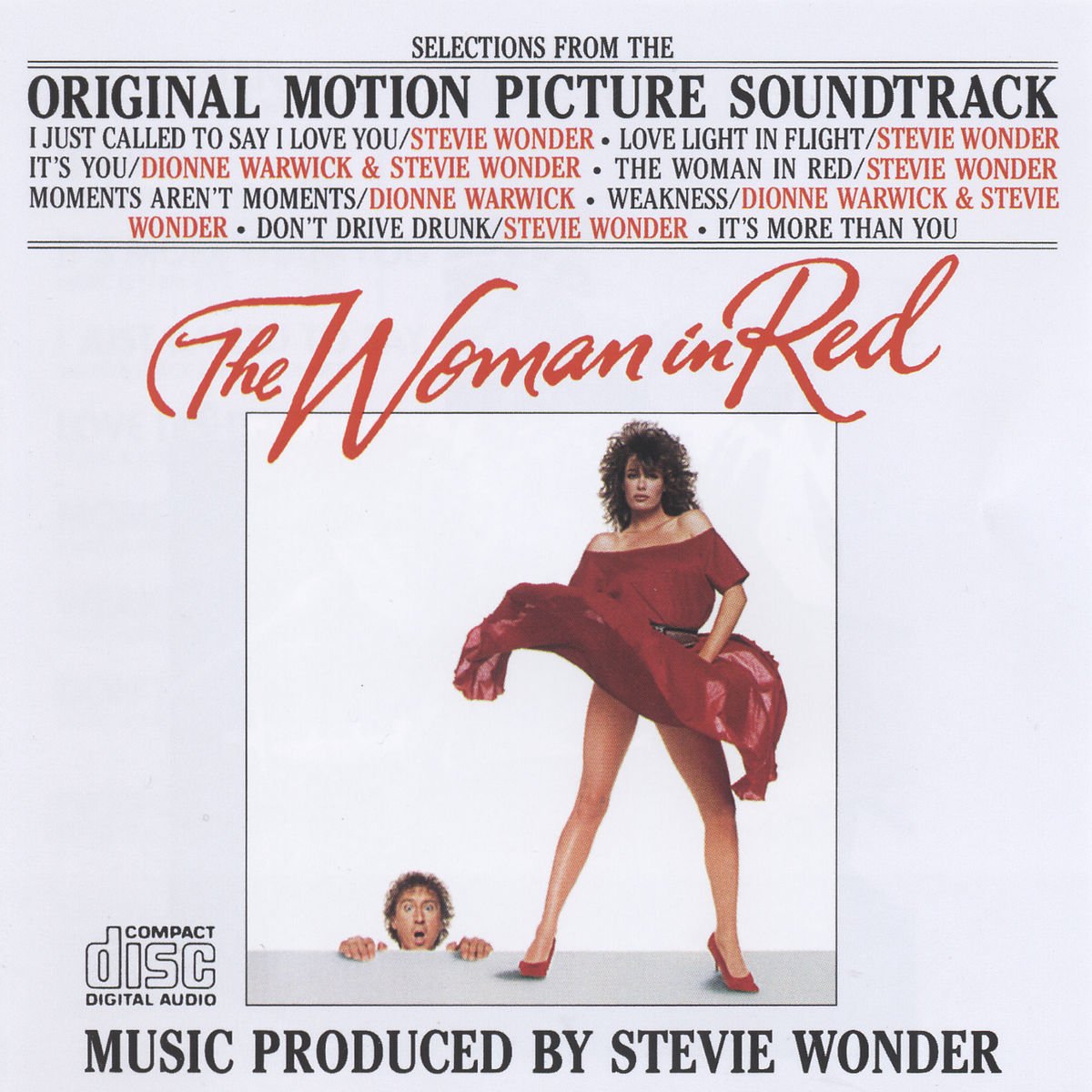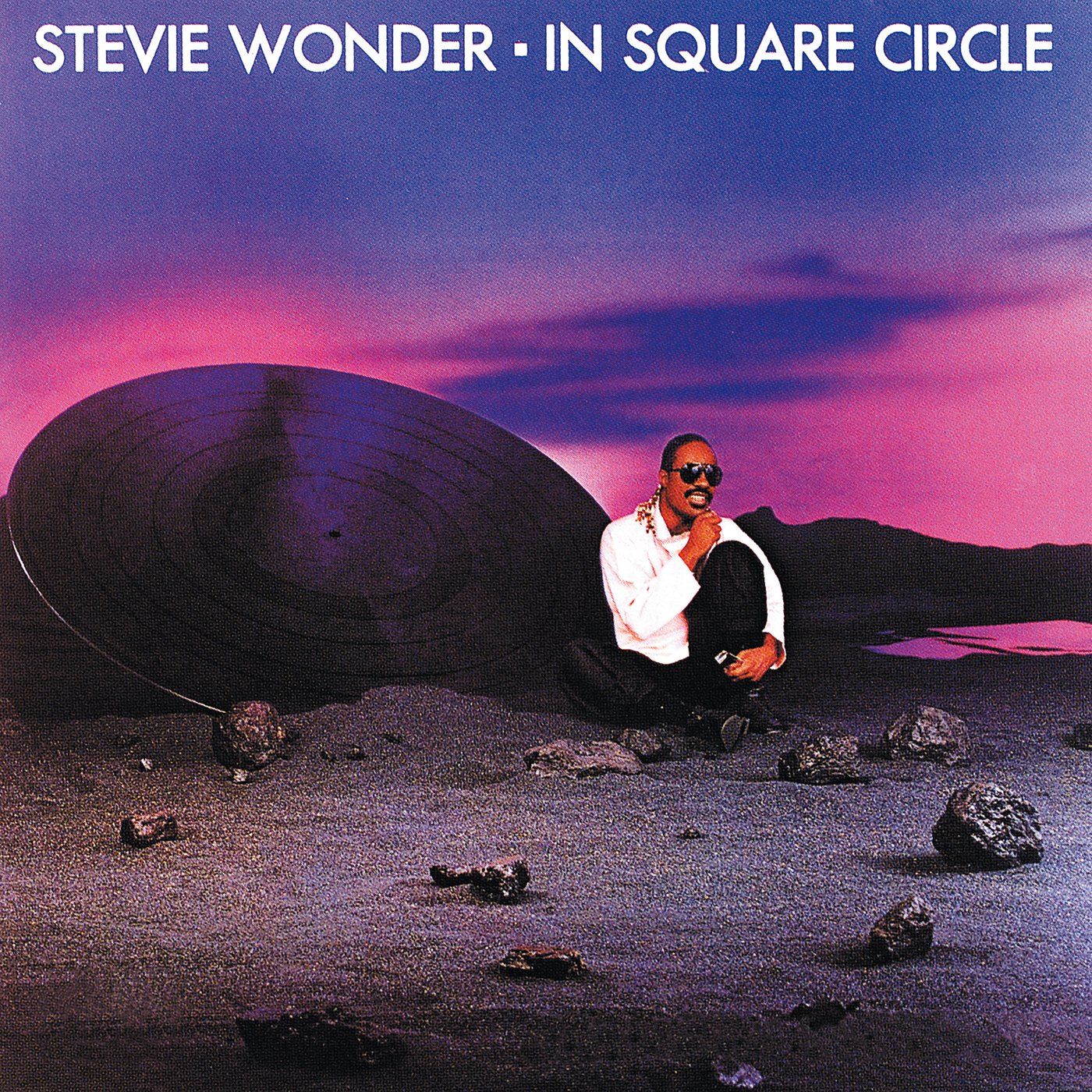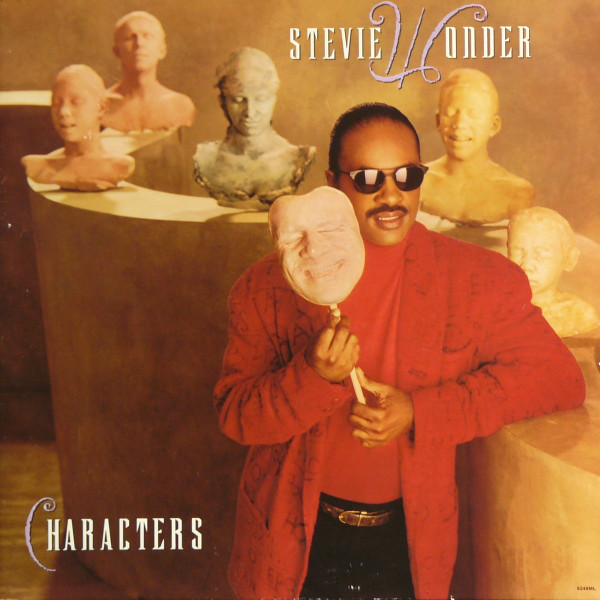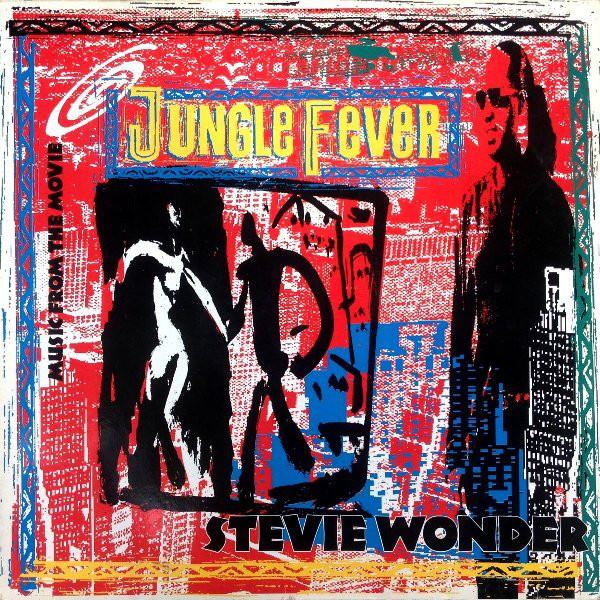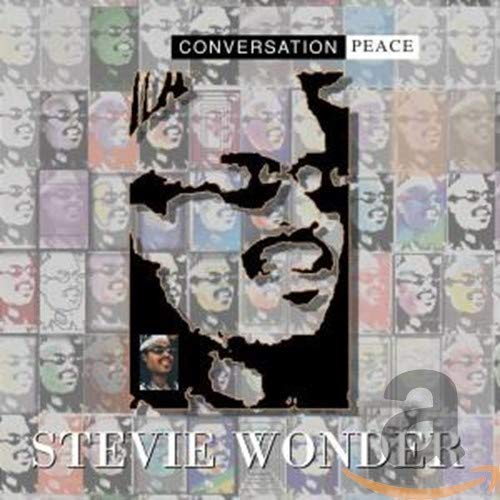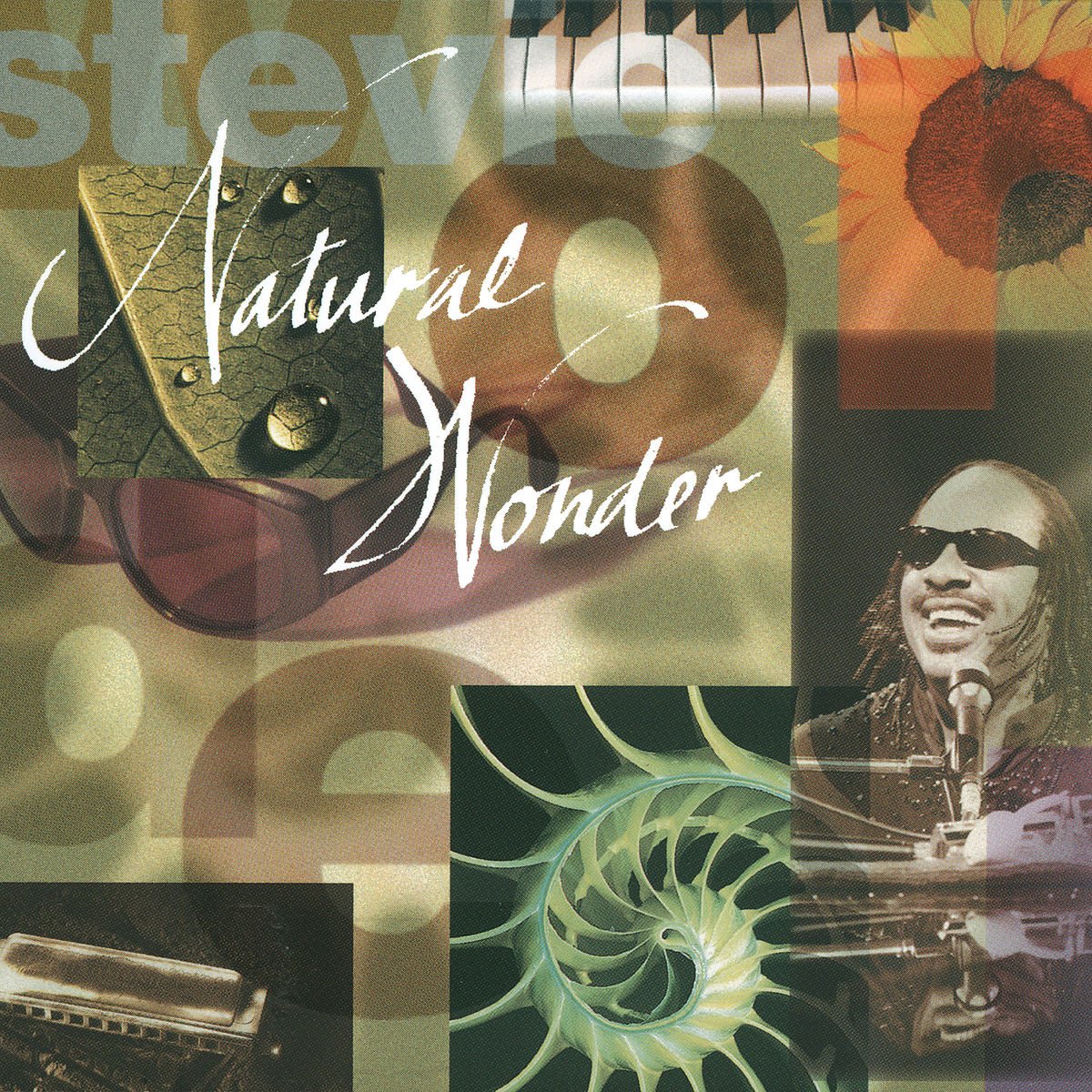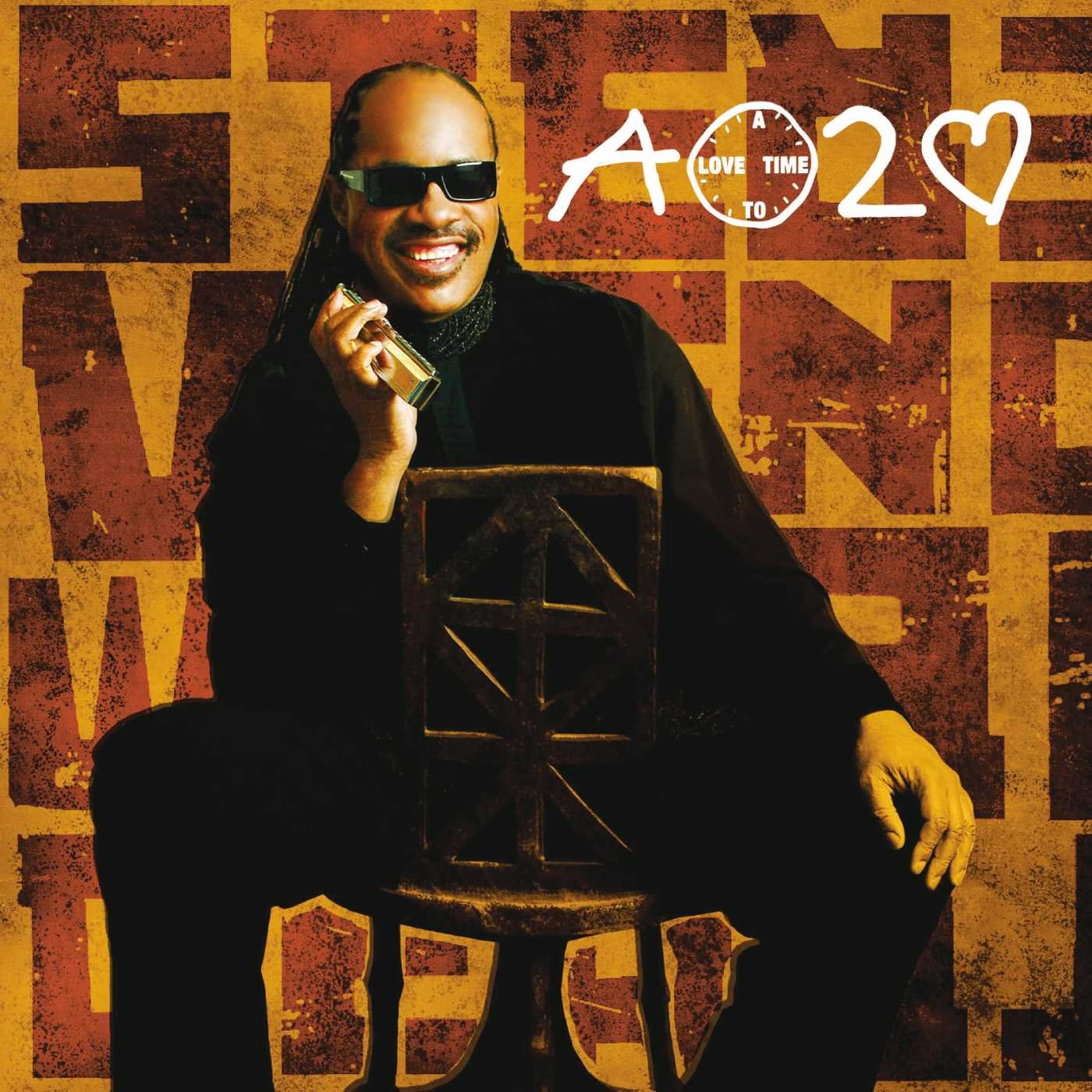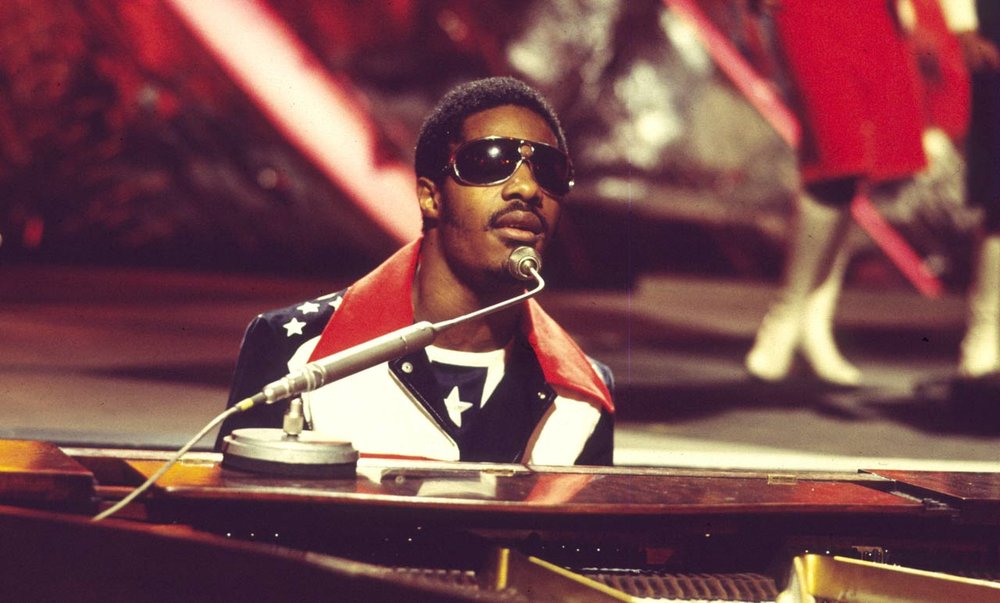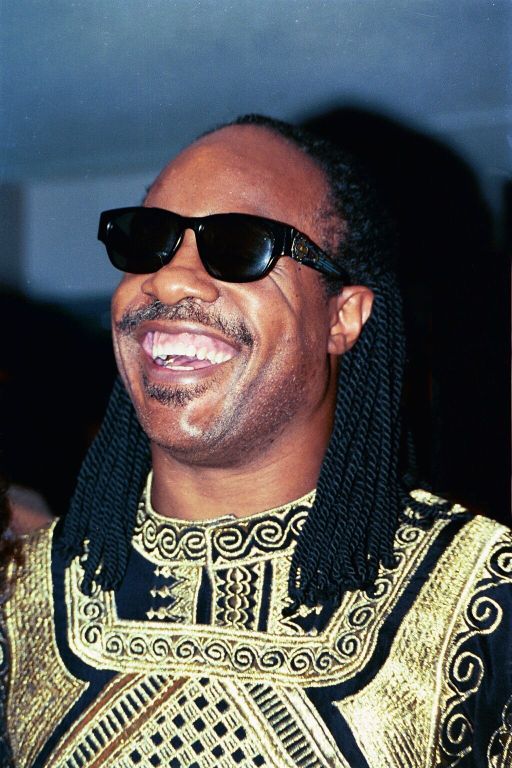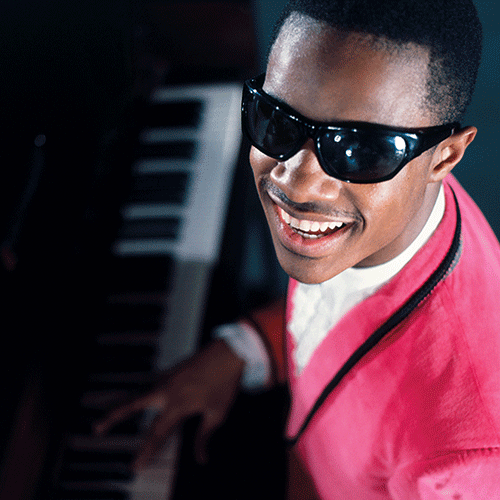Stevie Wonder
Stevland Hardaway Morris (né Judkins; born May 13, 1950), known professionally as Stevie Wonder, is an American singer, songwriter, musician and record producer. A prominent figure in popular music, he is one of the most successful songwriters and musicians in the history of music. Through his heavy use of electronic instruments and innovative sounds, Wonder became a pioneer and influence to musicians of various genres including pop, rhythm and blues, soul, funk and rock.
Blind since shortly after his birth, Wonder was a child prodigy known as Little Stevie Wonder, leading him to sign with Motown's Tamla label at the age of 11. In 1963, the single "Fingertips" was a number-one hit on the Billboard Hot 100 when Wonder was aged 13, making him the youngest artist ever to top the chart. Wonder's critical success was at its peak in the 1970s when he started his "classic period" in 1972 with the releases of Music of My Mind and Talking Book, with the latter featuring the number-one hit "Superstition". "Superstition" is one of the most distinctive and famous examples of the sound of the Hohner Clavinet keyboard. With Innervisions (1973), Fulfillingness' First Finale (1974) and Songs in the Key of Life (1976) all winning the Grammy Award for Album of the Year, Wonder became the tied record holder, with Frank Sinatra, for the most Album of the Year wins with three. Wonder is also the only artist to have won the award with three consecutive album releases.
Wonder's "classic period", which is widely considered to have ended in 1977, was noted for his funky keyboard style, personal control of production, and series of songs integrated with one another to make a concept album. In 1979, Wonder made use of the early music sampler Computer Music Melodian through his composition of the soundtrack album Stevie Wonder's Journey Through "The Secret Life of Plants". It was also his first digital recording, and one of the earliest popular albums to use the technology, which Wonder used for all subsequent recordings. Wonder's 1970s albums are regarded as very influential; the Rolling Stone Record Guide (1983) wrote they "pioneered stylistic approaches that helped to determine the shape of pop music for the next decade".
Wonder has sold over 100 million records worldwide, making him one of the best-selling music artists of all time. He has won 25 Grammy Awards, making him one of the most awarded artists of all time. He was the first Motown artist and second African-American musician to win an Academy Award for Best Original Song, for the 1984 film The Woman in Red. Wonder has been inducted into the Rhythm and Blues Music Hall of Fame, Rock and Rock Hall of Fame and Songwriters Hall of Fame, and has received a star on the Hollywood Walk of Fame. Wonder is also noted for his work as an activist for political causes, including his 1980 campaign to make Martin Luther King Jr.'s birthday a holiday in the United States. In 2009, he was named a United Nations Messenger of Peace.
Early Life
Wonder was born Stevland Hardaway Judkins in Saginaw, Michigan, on May 13, 1950, the third of six children born to Calvin Judkins and songwriter Lula Mae Hardaway. He was born six weeks premature which, along with the oxygen-rich atmosphere in the hospital incubator, resulted in retinopathy of prematurity, a condition in which the growth of the eyes is aborted and causes the retinas to detach, so he became blind.
When Wonder was four, his mother divorced his father and moved with her children to Detroit, Michigan, where Wonder sang as a child in a choir at the Whitestone Baptist Church. She changed her name back to Lula Hardaway and later changed her son's surname to Morris, partly because of relatives. Wonder has retained Morris as his legal surname. He began playing instruments at an early age, including piano, harmonica, and drums. He formed a singing partnership with a friend; calling themselves Stevie and John, they played on street corners and occasionally at parties and dances.
As a child, Wonder attended Fitzgerald Elementary School. After his first album was released, he enrolled in Michigan School for the Blind.
Career
1961 -1969: Sixties Singles
In 1961, when aged 11, Wonder sang his own composition, "Lonely Boy", to Ronnie White of the Miracles; White then took Wonder and his mother to an audition at Motown, where CEO Berry Gordy signed Wonder to Motown's Tamla label. Before signing, producer Clarence Paul gave him the name Little Stevie Wonder. Because of Wonder's age, the label drew up a rolling five-year contract in which royalties would be held in trust until Wonder was 21. He and his mother would be paid a weekly stipend to cover their expenses: Wonder received $2.50 (equivalent to $21.39 in 2019) per week, and a private tutor was provided for when Wonder was on tour.
Wonder was put in the care of producer and songwriter Clarence Paul, and for a year they worked together on two albums. Tribute to Uncle Ray was recorded first, when Wonder was still 11 years old. Mainly covers of Ray Charles's songs, the album included a Wonder and Paul composition, "Sunset". The Jazz Soul of Little Stevie was recorded next, an instrumental album consisting mainly of Paul's compositions, two of which, "Wondering" and "Session Number 112", were co-written with Wonder. Feeling Wonder was now ready, a song, "Mother Thank You", was recorded for release as a single, but then pulled and replaced by the Berry Gordy song "I Call It Pretty Music, But the Old People Call It the Blues" as his début single; released summer 1962, it almost broke into the Billboard 100, spending one week of August at 101. Two follow-up singles, "Little Water Boy" and "Contract on Love", both had no success, and the two albums, released in reverse order of recording—The Jazz Soul of Little Stevie in September 1962 and Tribute to Uncle Ray in October 1962—also met with little success.
At the end of 1962, when Wonder was 12 years old, he joined the Motortown Revue, touring the "Chitlin' Circuit" of theatres across America that accepted black artists. At the Regal Theater, Chicago, his 20-minute performance was recorded and released in May 1963 as the album Recorded Live: The 12 Year Old Genius. A single, "Fingertips", from the album was also released in May, and became a major hit. The song, featuring a confident and enthusiastic Wonder returning for a spontaneous encore that catches out the replacement bass player, who is heard to call out "What key? What key?", was a No. 1 hit on the Billboard Hot 100 when Wonder was aged 13, making him the youngest artist ever to top the chart. The single was simultaneously No. 1 on the R&B chart, the first time that had occurred. His next few recordings, however, were not successful; his voice was changing as he got older, and some Motown executives were considering cancelling his recording contract. During 1964, Wonder appeared in two films as himself, Muscle Beach Party and Bikini Beach, but these were not successful either. Sylvia Moy persuaded label owner Berry Gordy to give Wonder another chance.
Dropping the "Little" from his name, Moy and Wonder worked together to create the hit "Uptight (Everything's Alright)", and Wonder went on to have a number of other hits during the mid-1960s, including "With a Child's Heart", and "Blowin' in the Wind", a Bob Dylan cover, co-sung by his mentor, producer Clarence Paul. He also began to work in the Motown songwriting department, composing songs both for himself and his label mates, including "The Tears of a Clown", a No. 1 hit for Smokey Robinson and the Miracles (it was first released in 1967, mostly unnoticed as the last track of their Make It Happen LP, but eventually became a major success when re-released as a single in 1970, which prompted Robinson to reconsider his intention of leaving the group).
In 1968 he recorded an album of instrumental soul/jazz tracks, mostly harmonica solos, under the title Eivets Rednow, which is "Stevie Wonder" spelled backward. The album failed to get much attention, and its only single, a cover of "Alfie", only reached number 66 on the U.S. Pop charts and number 11 on the US Adult Contemporary charts. Nonetheless, he managed to score several hits between 1968 and 1970 such as "I Was Made to Love Her", "For Once in My Life" and "Signed, Sealed, Delivered I'm Yours". A number of Wonder's early hits, including "My Cherie Amour", "I Was Made to Love Her", and "Uptight (Everything's Alright)", were co-written with Henry Cosby. The hit single "Signed, Sealed, Delivered I'm Yours" was his first-ever self-produced song.
In 1969 Stevie Wonder participated in the Sanremo Music Festival with the song "Se tu ragazza mia", in conjunction with Gabriella Ferri. Between 1967 and 1970 he recorded four 45 rpm and an Italian LP.
1970 - 1979: Seventies Albums and Classic Period
In September 1970, at the age of 20, Wonder married Syreeta Wright, a songwriter and former Motown secretary. Wright and Wonder worked together on the next album, Where I'm Coming From (1971), Wonder writing the music, and Wright helping with the lyrics. Around this time, Wonder became interested in utilizing synthesizers after hearing albums by electronic group Tonto's Expanding Head Band. Wonder and Wright wanted to "touch on the social problems of the world", and for the lyrics "to mean something". The album was released at around the same time as Marvin Gaye's What's Going On. As both albums had similar ambitions and themes, they have been compared; in a contemporaneous review by Vince Aletti in Rolling Stone, Gaye's was seen as successful, while Wonder's was seen as failing due to "self-indulgent and cluttered" production, "undistinguished" and "pretentious" lyrics, and an overall lack of unity and flow. Also in 1970, Wonder co-wrote, and played numerous instruments on the hit "It's a Shame" for fellow Motown act the Spinners. His contribution was meant to be a showcase of his talent and thus a weapon in his ongoing negotiations with Gordy about creative autonomy. Reaching his 21st birthday on May 13, 1971, he allowed his Motown contract to expire.
During this period, Wonder independently recorded two albums and signed a new contract with Motown Records. The 120-page contract was a precedent at Motown and gave Wonder a much higher royalty rate. Wonder returned to Motown in March 1972 with Music of My Mind. Unlike most previous albums on Motown, which usually consisted of a collection of singles, B-sides and covers, Music of My Mind was a full-length artistic statement with songs flowing together thematically. Wonder's lyrics dealt with social, political, and mystical themes as well as standard romantic ones, while musically he began exploring overdubbing and recording most of the instrumental parts himself. Music of My Mind marked the beginning of a long collaboration with Tonto's Expanding Head Band (Robert Margouleff and Malcolm Cecil).
Released in late 1972, Talking Book featured the No. 1 hit "Superstition", which is one of the most distinctive and famous examples of the sound of the Hohner Clavinet keyboard. Talking Book also featured "You Are the Sunshine of My Life", which also peaked at No. 1. During the same time as the album's release, Wonder began touring with the Rolling Stones to alleviate the negative effects from pigeonholing as a result of being an R&B artist in America. Wonder's touring with the Stones was also a factor behind the success of both "Superstition" and "You Are the Sunshine of My Life". Between them, the two songs won three Grammy Awards. On an episode of the children's television show Sesame Street that aired in April 1973, Wonder and his band performed "Superstition", as well as an original called "Sesame Street Song", which demonstrated his abilities with television.
Innervisions, released in 1973, featured "Higher Ground" (No. 4 on the pop charts) as well as the trenchant "Living for the City" (No. 8). Both songs reached No. 1 on the R&B charts. Popular ballads such as "Golden Lady" and "All in Love Is Fair" were also present, in a mixture of moods that nevertheless held together as a unified whole. Innervisions generated three more Grammy Awards, including Album of the Year. The album is ranked No. 23 on Rolling Stone's 500 Greatest Albums of All Time. Wonder had become the most influential and acclaimed black musician of the early 1970s.
On August 6, 1973, Wonder was in a serious automobile accident while on tour in North Carolina, when a car in which he was riding hit the back of a truck. This left him in a coma for four days and resulted in a partial loss of his sense of smell and a temporary loss of sense of taste. Despite the setback, Wonder re-appeared for a European tour in early 1974, performing at the Midem convention in Cannes, at the Rainbow Theatre in London, and on the German television show Musikladen. On his return from Europe, he played a sold-out concert at Madison Square Garden in March 1974, highlighting both up-tempo material and long, building improvisations on mid-tempo songs such as "Living for the City". The album Fulfillingness' First Finale appeared in July 1974 and set two hits high on the pop charts: the No. 1 "You Haven't Done Nothin'" and the Top Ten "Boogie on Reggae Woman". The Album of the Year was again one of three Grammys won.
The same year Wonder took part in a Los Angeles jam session that would become known as the bootleg album A Toot and a Snore in '74. He also co-wrote and produced the Syreeta Wright album Stevie Wonder Presents: Syreeta.
On October 4, 1975, Wonder performed at the historic "Wonder Dream Concert" in Kingston, Jamaica, a benefit for the Jamaican Institute for the Blind. In 1975, he played harmonica on two tracks on Billy Preston's album It's My Pleasure.
By 1975, at the age of 25, Wonder had won two consecutive Grammy Awards: in 1974 for Innervisions and in 1975 for Fulfillingness' First Finale. In 1976, when Paul Simon won the Album Of The Year Grammy for his Still Crazy After All These Years, he wryly noted, "I'd like to thank Stevie Wonder, who didn't make an album this year."
The double album-with-extra-EP Songs in the Key of Life was released in September 1976. Sprawling in style, unlimited in ambition, and sometimes lyrically difficult to fathom, the album was hard for some listeners to assimilate, yet is regarded by many as Wonder's crowning achievement and one of the most recognizable and accomplished albums in pop music history. The album became the first by an American artist to debut straight at No. 1 in the Billboard charts, where it stood for 14 non-consecutive weeks. Two tracks became No. 1 Pop/R&B hits: "I Wish" and "Sir Duke". The baby-celebratory "Isn't She Lovely?" was written about his newborn daughter Aisha, while songs such as "Love's in Need of Love Today" and "Village Ghetto Land" reflected a far more pensive mood. Songs in the Key of Life won Album of the Year and two other Grammys. The album ranks 57th on Rolling Stone's 500 Greatest Albums of All Time.
Until 1979's Stevie Wonder's Journey Through "The Secret Life of Plants" his only release was the retrospective three-disc album Looking Back, an anthology of his early Motown period.
1980 - 1990: Commercial Period
The 1980s saw Wonder achieving his biggest hits and highest level of fame; he had increased album sales, charity participation, high-profile collaborations, political impact, and television appearances. The 1979 mainly instrumental soundtrack album Stevie Wonder's Journey Through "The Secret Life of Plants" was composed using an early music sampler, a Computer Music Melodian. It was also his first digital recording, and one of the earliest popular albums to use the technology, which Wonder used for all subsequent recordings. Wonder toured briefly in support of the album, and used a Fairlight CMI sampler on stage. In this year Wonder also wrote and produced the dance hit "Let's Get Serious", performed by Jermaine Jackson and (ranked by Billboard as the No. 1 R&B single of 1980).
Hotter than July (1980) became Wonder's first platinum-selling single album, and its single "Happy Birthday" was a successful vehicle for his campaign to establish Dr. Martin Luther King's birthday as a national holiday. The album also included "Master Blaster (Jammin')", "I Ain't Gonna Stand for It", and the sentimental ballad, "Lately".
In 1982, Wonder released a retrospective of his 1970s work with Stevie Wonder's Original Musiquarium, which included four new songs: the ten-minute funk classic "Do I Do" (which featured Dizzy Gillespie), "That Girl" (one of the year's biggest singles to chart on the R&B side), "Front Line", a narrative about a soldier in the Vietnam War that Wonder wrote and sang in the first person, and "Ribbon in the Sky", one of his many classic compositions. He also gained a No. 1 hit that year in collaboration with Paul McCartney in their paean to racial harmony, "Ebony and Ivory".
In 1983, Wonder performed the song "Stay Gold", the theme to Francis Ford Coppola's film adaptation of S. E. Hinton's novel The Outsiders. Wonder wrote the lyrics. In 1983, he scheduled an album to be entitled People Work, Human Play. The album never surfaced and instead 1984 saw the release of Wonder's soundtrack album for The Woman in Red. The lead single, "I Just Called to Say I Love You", was a No. 1 pop and R&B hit in both the United States and the United Kingdom, where it was placed 13th in the list of best-selling singles in the UK published in 2002. It went on to win an Academy award for best song in 1985. Wonder accepted the award in the name of Nelson Mandela and was subsequently banned from all South African radio by the Government of South Africa. Incidentally, on the occasion of his 35th birthday, Stevie Wonder was honored by the United Nations Special Committee Against Apartheid for his stance against racism in South Africa that same year (1985). The album also featured a guest appearance by Dionne Warwick, singing the duet "It's You" with Stevie and a few songs of her own. Following the success of the album and its lead single, Wonder made an appearance on The Cosby Show, in the episode "A Touch of Wonder" where he demonstrated his ability to sample. The following year's In Square Circle featured the No. 1 pop hit "Part-Time Lover". The album also has a Top 10 Hit with "Go Home." It also featured the ballad "Overjoyed", which was originally written for Journey Through "The Secret Life of Plants", but did not make the album. He performed "Overjoyed" on Saturday Night Live when he was the host. He was also featured in Chaka Khan's cover of Prince's "I Feel For You", alongside Melle Mel, playing his signature harmonica. In roughly the same period he was also featured on harmonica on Eurythmics' single, "There Must Be an Angel (Playing with My Heart)" and Elton John's "I Guess That's Why They Call It the Blues".
Wonder was in a featured duet with Bruce Springsteen on the all-star charity single for African Famine Relief, "We Are the World", and he was part of another charity single the following year (1986), the AIDS-inspired "That's What Friends Are For". He played harmonica on the album Dreamland Express by John Denver in the song "If Ever", a song Wonder co-wrote with Stephanie Andrews; wrote the track "I Do Love You" for the Beach Boys' 1985 self-titled album; and played harmonica on "Can't Help Lovin' That Man" on The Broadway Album by Barbra Streisand. In 1987, Wonder appeared on Michael Jackson's Bad album, on the duet "Just Good Friends". Michael Jackson also sang a duet with him entitled "Get It" on Wonder's 1987 album Characters. This was a minor hit single, as were "Skeletons" and "You Will Know".
1991 - 1999: Continued released new material, 1996 Summer Olympics
After 1987's Characters album, Wonder continued to release new material, but at a slower pace. He recorded a soundtrack album for Spike Lee's film Jungle Fever in 1991. From this album, singles and videos were released for "Gotta Have You", "Fun Day" (remix only), "These Three Words" and "Jungle Fever". The B-side to the "Gotta Have You" single was "Feeding Off The Love of the Land", which was played during the end credits of the movie Jungle Fever but was not included on the soundtrack. A piano and vocal version of "Feeding Off The Love of the Land" was also released on the Nobody's Child: Romanian Angel Appeal compilation. Conversation Peace and the live album Natural Wonder were released in the 1990s.
Among his other activities he played harmonica on one track for the 1994 tribute album Kiss My Ass: Classic Kiss Regrooved; sang at the 1996 Summer Olympics closing ceremony; collaborated in 1997 with Babyface on "How Come, How Long", a song about domestic violence that was nominated for a Grammy award; and played harmonica on Sting's 1999 "Brand New Day". In December 1999, Wonder announced that he was interested in pursuing an intraocular retinal prosthesis to partially restore his sight.
2000 - present: Later career
Into the 21st century, Wonder contributed two new songs to the soundtrack for Spike Lee's Bamboozled album ("Misrepresented People" and "Some Years Ago"). Wonder continues to record and perform; though mainly occasional appearances and guest performances, he did do two tours, and released one album of new material, 2005's A Time to Love. In June 2006, Wonder made a guest appearance on Busta Rhymes' album The Big Bang, on the track "Been through the Storm". He sings the refrain and plays the piano on the Dr. Dre- and Sha Money XL–produced track. He appeared again on the last track of Snoop Dogg's album Tha Blue Carpet Treatment, "Conversations". The song is a remake of "Have a Talk with God" from Songs in the Key of Life. In 2006, Wonder staged a duet with Andrea Bocelli on the latter's album Amore, offering harmonica and additional vocals on "Canzoni Stonate". Wonder also performed at Washington, D.C.'s 2006 "A Capitol Fourth" celebration. His key appearances include performing at the opening ceremony of the 2002 Winter Paralympics in Salt Lake City, the 2005 Live 8 concert in Philadelphia, the pre-game show for Super Bowl XL in 2006, the Obama Inaugural Celebration in 2009, and the opening ceremony of the 2011 Special Olympics World Summer Games in Athens, Greece.
Wonder's first new album in ten years, A Time to Love, was released in October 2005 to lower sales than previous albums, and lukewarm reviews—most reviewers appearing frustrated at the end of the long delay to get an album that mainly copied the style of Wonder's "classic period" without doing anything new. The first single, "So What the Fuss", was released in April. A second single, "From the Bottom of My Heart", was a hit on adult-contemporary R&B radio. The album also featured a duet with India Arie on the title track "A Time to Love". By June 2008, Wonder was working on two projects simultaneously: a new album called The Gospel Inspired By Lula, which will deal with the various spiritual and cultural crises facing the world, and Through The Eyes Of Wonder, an album he has described as a performance piece that will reflect his experience as a blind man. Wonder was also keeping the door open for a collaboration with Tony Bennett and Quincy Jones concerning a rumored jazz album. If Wonder were to join forces with Bennett, it would not be for the first time; their rendition of "For Once in My Life" earned them a Grammy for best pop collaboration with vocals in 2006. Wonder's harmonica playing can be heard on the 2009 Grammy-nominated "Never Give You Up", featuring CJ Hilton and Raphael Saadiq.
Wonder did a 13-date tour of North America in 2007, starting in San Diego on August 23; this was his first U.S. tour in more than 10 years. On September 8, 2008, he started the European leg of his Wonder Summer's Night Tour, the first time he had toured Europe in over a decade. His opening show was at the National Indoor Arena in Birmingham in the English Midlands. During the tour, he played eight UK gigs; four at the O2 Arena in London (filmed in HD and subsequently released as a live-in-concert release on DVD and Blu-Ray, Live At Last), two in Birmingham and two at the M.E.N. Arena in Manchester. Wonder's other stops in the tour's European leg also found him performing in the Netherlands (Rotterdam), Sweden (Stockholm), Germany (Cologne, Mannheim and Munich), Norway (Hamar), France (Paris), Italy (Milan) and Denmark (Aalborg). Wonder also toured Australia (Perth, Adelaide, Melbourne, Sydney and Brisbane) and New Zealand (Christchurch, Auckland and New Plymouth) in October and November. His 2010 tour included a two-hour set at the Bonnaroo Music Festival in Manchester, Tennessee, a stop at London's "Hard Rock Calling" in Hyde Park, and appearances at England's Glastonbury Festival, Rotterdam's North Sea Jazz Festival, and a concert in Bergen, Norway, and a concert in Dublin, Ireland, at the O2 Arena on June 24.
He sang at the Michael Jackson memorial service in 2009, at Etta James' funeral, in 2012, and a month later at Whitney Houston's memorial service.
Wonder appeared on singer Celine Dion's studio album Loved Me Back to Life performing a cover of his 1985 song "Overjoyed". The album was released in October 2013. He was also featured on two tracks on Mark Ronson's album Uptown Special.
In 2013, Wonder revealed that he had been recording new material for two albums, When the World Began and Ten Billion Hearts, in collaboration with producer David Foster, to be released in 2014. The albums have not been released yet.
